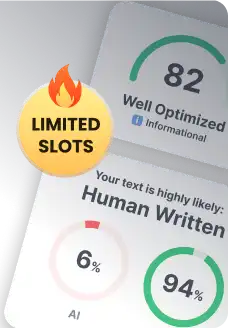Have you ever lost yourself in a captivating story and wondered if you could create something equally magical? You might be surprised to learn that many successful authors started with no professional writing experience. The truth is, that the power of storytelling lies within everyone, waiting to be unlocked. This guide will provide you with the necessary tools and knowledge to begin your writing journey, even if you’re starting from scratch. We’ll explore various techniques, from developing compelling characters to crafting engaging plots, and guide you through the process of bringing your story to life.
Key Takeaways
- Start by committing to a daily writing routine to build discipline and confidence in your writing ability.
- Gather essential writing tools, such as a reliable word processor and writing guides, to support your creative process.
- Develop a solid story foundation by outlining your plot, setting, and characters before diving into the writing.
- Draw inspiration from everyday experiences to create relatable and authentic stories that resonate with readers.
- Seek feedback from experienced writers or join writing groups to gain valuable insights and improve your skills.
- Be patient with yourself; embrace the iterative nature of writing, understanding that revisions are part of crafting a compelling narrative.
Begin Your Writing Journey
1. Set Clear Writing Goals
Beginner writers often ask, “Where do I start?” The answer is simple: set clear writing goals. These goals are crucial for staying motivated and tracking progress.
Define what you want to achieve—whether it’s a novel, a collection of short stories, or a memoir. Break your goal into manageable tasks, such as setting a daily word count or dedicating specific hours each week to writing. Ensure your goals are realistic; overambitious targets can lead to burnout.
Consistency is key to achieving goals. Incorporate writing into your routine and celebrate small victories to maintain momentum. If you feel stuck, beginner writing exercises can offer fresh perspectives and reignite your passion.
2. Find Your Inspiration Source
Every writer needs inspiration, but where does it come from? For some, it stems from personal experiences; for others, it’s the world around them. Exploring various sources can spark creativity.
Read widely across genres to broaden your horizons and expose yourself to different styles and techniques. Observe how authors evoke emotions or build suspense, and identify what resonates with you.
Inspiration also comes from engaging activities. Visit art galleries, take nature walks, or listen to music. Notice everyday moments and conversations. They might hold the seeds of a great story. Always jot down ideas as they arise—your next masterpiece might be just a thought away.
3. Choose the Right Genre
Choosing the right genre is like finding the perfect pair of shoes. It should fit comfortably and reflect your style. Start by considering what you enjoy reading. Do thrillers keep you on edge, or do romance novels warm your heart? Your preferences can guide your choice.
Think about the story you want to tell and your target audience. Each genre has conventions and reader expectations; understanding these will help shape your narrative effectively.
Remember, choosing a genre isn’t permanent. Many successful authors cross genres throughout their careers, so feel free to explore until you find one that truly speaks to you.
Equip Your Writing Toolkit
Essential Tools for Writers
To start writing a book with no experience, you need the right tools. Begin with simple options like a manuscript template to structure your thoughts and keep your writing organized. Notes are essential for jotting down ideas and plot points. Spreadsheets are useful for tracking character details, timelines, and chapter summaries.
Focus on mastering basic writing skills. Grammar ensures clarity and professionalism, while varied sentence structures keep readers engaged and maintain a natural flow. Don’t overlook these fundamentals; they are the backbone of compelling storytelling.
Join a Writing Community
Writing doesn’t have to be a solitary journey. Joining a writing community offers support and feedback, helping you see your work from different perspectives, which is invaluable for growth.
You can find these communities on online platforms like Reddit or Facebook groups. Local libraries and bookstores often host writing workshops or clubs. Attend these meet-ups to connect with fellow writers in person.
Read Widely to Enhance your Skills
Reading widely is crucial for any aspiring writer, as it exposes you to various genres and styles. Start by picking up books outside your comfort zone—mystery, sci-fi, memoirs—each offers unique insights into storytelling techniques.
Set aside dedicated time each day for reading, even if just 20 minutes. Take notes on what resonates with you or what falls flat. This active reading approach sharpens your analytical skills and inspires your writing journey.
Build Your Story Foundation
Explore Different Starting Points
Finding the right starting point is crucial when writing a book with no experience. Do you begin with a gripping event to hook readers immediately or a character-driven scene that gradually unfolds the narrative?
Consider starting with an outline. A clear outline acts as a roadmap, guiding your story’s direction and ensuring that each part connects logically.
Creating detailed character profiles is also essential for consistency and depth. Understand who your characters are and what motivates them to write authentic and engaging scenes.
Lastly, establish a strong attitude. The setting enhances the narrative and immerses readers in your world, whether it’s a bustling city or a quiet village. Make sure it is vivid and integral to your plot.
Develop a Unique Book Concept
Your book concept should stand out in a sea of stories. Identify what makes your idea special—perhaps a plot twist or a distinctive protagonist’s voice.
Want to try SurgeGraph for free?

Generate 20 documents

SEO tools (Auto Optimizer, Internal Linking, and more)

No credit card required
Consider why readers would care about your story. What’s the emotional hook? Engage curiosity by weaving in universal themes—love, conflict, triumph—that resonate on multiple levels, keeping readers invested.
Experiment with different genres or blend them to create something fresh. Mixing elements from various genres can lead to a compelling narrative that defies expectations.
Finally, ensure that every aspect of your concept aligns with your story’s theme and message. Consistency strengthens your narrative and reinforces its impact on readers.
Write About Everyday Experiences
Create Detailed Character Sketches
When starting to write a book with no prior experience, begin by creating detailed character sketches. Characters are the heart of any story; they drive the plot and engage readers. Draw inspiration from personal experiences and observations of unique individuals.
To add depth to your characters:
- Identify Key Traits: Define traits that make your characters stand out, such as bravery, wit, or kindness.
- Backstory Development: Create a backstory for each character to add layers and relatability.
- Behavioral Patterns: Observe real-life behaviors to inform your character’s actions.
Discover the Extraordinary in Daily Life
Extraordinary elements can be found in everyday experiences, which are a rich source of inspiration. Examine daily interactions and environments closely for stories and emotions.
Here’s how to uncover the magic in daily life:
- Observe Keenly: Notice small details, like how sunlight filters through trees or the rhythm of city life, to spark ideas.
- Engage Your Senses: Use all five senses to describe scenes vividly. For example, how does fresh coffee smell in the morning? What’s the texture of an old book?
- Familiar Settings: Write about familiar settings and scenarios to build confidence and capture nuances that bring scenes to life.
Seek Expert Guidance
Hire a Writing Coach
Hiring a writing coach is a smart step in your writing journey. A professional can provide personalized advice tailored to your skill level and goals, helping you develop your ideas into a coherent narrative. A writing coach answers questions about structure, style, and tone, ensuring you stay on track.
With their expertise, they improve your work by suggesting improvements and helping you avoid common pitfalls. Think of them as the GPS for your book-writing journey.
Enroll in Writing Workshops
Writing workshops are invaluable for budding authors. They offer a structured environment to hone your craft under the guidance of experienced professionals. In these workshops, you’ll engage in activities that sharpen your skills and deepen your understanding of storytelling techniques.
Additionally, workshops provide opportunities for constructive feedback from peers, offering different perspectives on your work and highlighting areas for improvement. These interactions foster a sense of community, making the often solitary job of writing feel less daunting.
Utilize Online Learning Resources
The internet is rich with resources that can enhance your writing experience. Websites like Google offer countless articles, videos, and tutorials for novice writers. Online courses led by professional writers allow you to learn at your own pace while gaining insights from experts.
Joining online writing communities also provides access to forums where you can ask questions, share experiences, and gather tips from seasoned authors. These platforms are treasure troves of information, covering everything from grammar tips to advanced storytelling techniques. Tap into this wealth of knowledge!
Avoid Common Beginner Mistakes
Plan Your Story Thoroughly
One of the biggest pitfalls for beginners is diving into writing without a clear plan. While it may be tempting to start immediately, this often leads to convoluted plots. Resist the urge to complicate your storyline with unnecessary twists and jargon. Instead, outline your ideas, considering the beginning, middle, and end of your story.
This approach provides essential structure and direction. To flesh out your plot, ask yourself: What are the main conflicts? How will characters evolve? Use writing exercises to explore these questions, as experienced authors do to clarify their thoughts before writing. A well-thought-out plan is the backbone of any good book.
Understand Your Target Audience
Knowing your audience is crucial for effective writing. Identify your target readers early on by asking: Who would enjoy my book? Understanding this will guide your tone, language, and content choices.
Consider everyday experiences your audience engages with, which will help you create relatable characters and scenarios. Tailor your narrative style to suit your readers’ preferences, enhancing your voice to resonate with those who will read your book.
Prioritize Effective Editing
Editing is where a new writer’s work truly shines. Many beginners overlook the importance of revising drafts, but it’s a critical step in crafting a polished manuscript. After completing your initial draft, set it aside for a while before revisiting it with fresh eyes.
Effective editing goes beyond correcting grammar; it involves refining your narrative for clarity and coherence. Identify sections that need trimming or elaboration, and seek feedback from writing courses or peers for different perspectives.
Avoid relying solely on editing tools. While helpful, they cannot replace the human touch in identifying nuances and improving writing skills.
Embrace the Writing Process
Want to try SurgeGraph for free?

Generate 20 documents

SEO tools (Auto Optimizer, Internal Linking, and more)

No credit card required
Establish a Consistent Writing Routine
Creating a consistent writing routine is essential. It’s about forming a habit. Set aside specific times each day dedicated solely to writing, whether early morning or late at night—whatever fits your schedule best. Consistency trains your mind to tap into creativity more easily.
Celebrate small milestones along the way. Did you finish a chapter or meet your weekly word count? These achievements keep your enthusiasm alive and fuel your momentum.
Conduct Thorough Research
Research is the backbone of any compelling book, especially for new writers. Dive deep into your subject matter. Understanding the nuances adds depth to your narrative, whether fiction or nonfiction. Utilize libraries, online databases, and credible sources to gather information.
Ask yourself: What do I need to know to make my book authentic? Why does this detail matter? Where can I find reliable information? How can I incorporate research seamlessly into my story? Answering these questions ensures your content is engaging and informative.
Revise and Edit Diligently
Writing is an iterative process; expect to revise and improve continuously. Don’t hesitate to rewrite sections that don’t work. Editing goes beyond fixing typos; it’s about refining your voice and enhancing clarity. Be ruthless in cutting out unnecessary content that doesn’t serve the story.
Stay open to constructive criticism. Seek feedback from trusted peers or professional editors who can provide fresh perspectives. Constructive criticism is invaluable for honing your skills and elevating your manuscript.
Explore Publishing Options
Understand Self-Publishing Benefits
Self-publishing offers numerous advantages. First, you maintain complete creative control over the cover design, layout, and pricing. This autonomy can be empowering for first-time authors. Platforms like Kindle Direct Publishing and Wattpad are accessible and user-friendly, allowing you to publish at your own pace.
Financially, self-publishing allows you to keep a larger share of royalties. While traditional publishers often take a significant cut, you can earn up to 70% of the sales price with self-publishing, making it a viable career option.
Additionally, self-publishing enables a direct connection with your readers. Engaging with them through social media or your author website boosts your visibility and helps create a loyal fanbase.
Learn About Traditional Publishing
Traditional publishing is another avenue worth exploring, often regarded as the gold standard due to its prestige. A reputable publisher lends your book an air of legitimacy, which can be beneficial. The journey typically begins by finding an agent who believes in your work.
Once you have representation, you’ll seek a publishing deal, a process that can be lengthy and competitive. Traditional publishers offer extensive resources, including professional editing, marketing teams, and established distribution channels, which can significantly enhance your book’s reach and impact.
However, it’s essential to weigh the pros and cons carefully. Traditional publishing often involves relinquishing some creative control and accepting lower royalty rates compared to self-publishing.
Determine Next Steps After Manuscript Completion
Completing your manuscript is just the beginning. Consider publishing short pieces online to build an audience. Platforms like Medium or Substack are ideal for this.
If you choose self-publishing, research different platforms and compare their features to find the one that aligns best with your goals.
Creating an author website is also crucial. It’s not just for showcasing your work; it helps build your brand. A well-designed site can attract readers and industry professionals.
Frequently Asked Questions
What are the odds of getting a book published?
The odds vary. Traditional publishing is competitive, with only a small percentage accepted. Self-publishing offers more control and higher chances but requires marketing effort.
How can I start writing a book with no experience?
Begin by reading widely and writing regularly. Focus on topics you’re passionate about. Use simple tools like notebooks or word processors to jot down your ideas.
Do I need special tools to write a book?
No special tools are required. A computer with a word processor suffices. Consider using apps for organization and grammar checks to enhance your writing.
How can everyday experiences inspire my writing?
Everyday experiences provide relatable content. They add authenticity and depth to your stories, making them more engaging for readers.
What publishing options are available for new authors?
New authors can choose traditional publishing, self-publishing, or hybrid models. Each has pros and cons regarding control, cost, and distribution.





